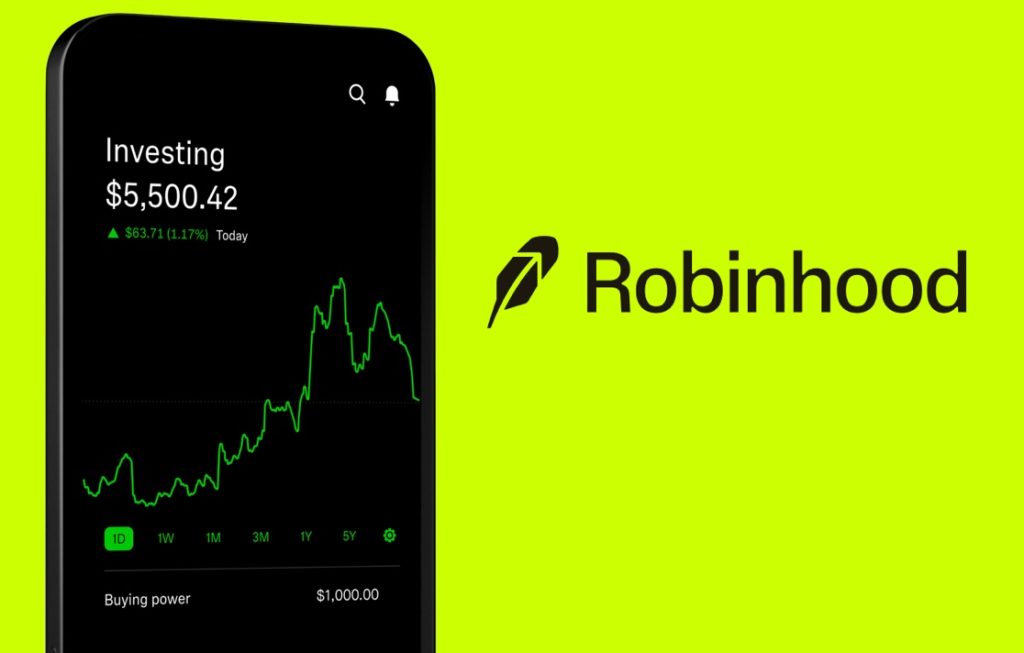
Robinhood Markets logo
The recent surge in Bitcoin’s value has sent ripples across the financial landscape, and Robinhood Markets, Inc. (NASDAQ: HOOD) appears to be one of the beneficiaries of this rally. With Bitcoin surging past the significant psychological and technical resistance levels of $100,000, retail interest in cryptocurrencies has created new opportunities for trading platforms like Robinhood.
Originally launched in 2013 as an app, Robinhood offered a mobile-first approach to commission-free trading with no account minimums. A simple and intuitive interface encouraged adoption by users who normally didn’t invest in the stock market.
Robinhood Markets went public in 2021 at a $32 billion valuation. The stock has been volatile reflecting mixed investor sentiment and broader market dynamics.
Today, Robinhood’s crypto trading platform, which allows users to buy, sell, and store popular cryptocurrencies like Bitcoin, Ethereum, and Dogecoin, plays a significant role in its business model. Crypto trading has increasingly contributed a larger share of the company’s transaction volume.
While the Bitcoin rally presents opportunities, it also comes with risks for Robinhood. Regulatory scrutiny of cryptocurrency markets remains high with the SEC and other global regulators intensifying oversight. Additionally, Robinhood’s revenue is sensitive to market conditions with a sudden correction in Bitcoin’s price leading to reduced trading activity.
Robinhood also faces competition from other established cryptocurrency exchanges like Coinbase (Nasdaq: COIN) and Binance which offer advanced trading features and a broader range of digital assets.
Robinhood stock is currently trading near its 52-week high at $48 a share with a $42 billion market capitalization. The stock was trading in the $10-15 range a year ago.




